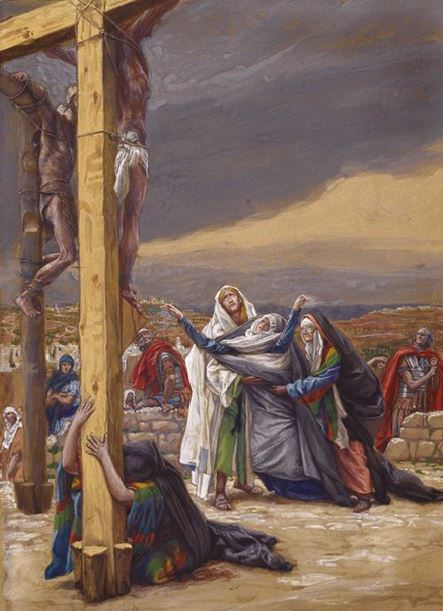AT THE OUTSET, we need to realise that God loves the world with an everlasting love: ‘For God so loved the world, that he gave his only Son, that whoever believes in him should not perish but have eternal life’ (John 3:16).
Salvation has come to humanity by means of Jesus Christ. It is the gift of God: ‘In Christ God was reconciling the world to himself’ (2 Corinthians 5:19).
Human Wickedness
God has given everyone the opportunity to choose between right and wrong, good and evil. He has promised everlasting life to those who choose to follow His way. Sadly, we often make the wrong choice. We ignore God’s principle of love.
Down the centuries, millions have died in countless wars. Wars start because of human pride and greed (James 4:1–3). God is not to blame.
Hunger, too, has brought suffering to millions. Yet one nation selfishly hoards food while people starve in another. We are responsible for this, not God.
Illegal ‘hard’ drugs are sweeping the world, with terrible consequences for millions. Money rules. The Bible says ‘the love of money is a root of all kinds of evils’ (1 Timothy 6:10). Human greed is the cause.
We live in a violent age. The old are attacked, the young are abused, the helpless are exploited. We must acknowledge that we ourselves play a major part in the cause of suffering. But we are not solely responsible.
Acts of God
The power in nature is awesome. You cannot experience an earthquake, a volcanic eruption, a raging sea or a hurricane without feeling helpless.
Yet many accidents which are glibly called ‘acts of God’ could be avoided. For example, the ‘unsinkable’ ship Titanic hit an iceberg and sank on its maiden voyage in 1912. Hundreds of passengers drowned. It was tragic, but surely we cannot expect God to move icebergs out of the way?
We live in a world of cause and effect. We know that we can drown in water or get burned in a fire. The universe is governed by natural laws. When we challenge these laws we shall not always escape. If God kept changing the laws of nature to protect us from ourselves, life on earth would be impossibly unpredictable.
It is generally agreed that natural disasters are increasing in frequency and severity, and it is generally believed that this is at least partly due to the effects of our own pollution on the planet.
However, there are disasters which we cannot foresee, and for which we can’t be responsible. For example, sometimes rainfall fails, and harvests fail with it. God is the master of the universe, not humans (Job 38:1–4). We shall not, in this present age, fully understand God’s mind. But we are all part of a common humanity. Just as God ‘sends rain on the just and on the unjust’ (Matthew 5:45), so also natural disasters affect the innocent and guilty alike. God’s power is great and we are weak. He does not give anyone a guarantee of security in this life.
It is easy to assume that suffering is always evil. However, a universal principle is at work. The Bible teaches that suffering in itself is not evil. It is the outworking of a much deeper problem: suffering is the result of sin (the breaking of God’s law). ‘Sin came into the world through one man, and death through sin, and so death spread to all men because all sinned’ (Romans 5:12).
It is sometimes assumed that when evil happens to someone, they must somehow deserve it. Jesus firmly refuted that notion. When innocent people died after a tower collapsed, he said ‘those eighteen on whom the tower in Siloam fell and killed them: do you think that they were worse offenders than all the others who lived in Jerusalem? No, I tell you; but unless you repent, you will all likewise perish’ (Luke 13:4–5).
When you experience or see suffering, don’t wonder whether it was deserved, and don’t feel helpless—let it remind you how vulnerable you are, and take the opportunity to search out the meaning of life.
Suffering and Sin
When sin came into the world in the Garden of Eden (Genesis 3), the perfect harmony between God and humans had been broken. We have been paying a heavy price ever since. Sin and death are the real problems we face. They help, in part, to explain the problem of suffering.
When Adam sinned, death became universal. There are no exceptions to it. There has only been one man who never sinned: Jesus Christ, the Son of God. Because he was sinless God raised him from the dead (Acts 2:24).
But Jesus suffered terribly, and died an awful death. Why did God allow His Son to go through that? Jesus, the best of men, did not deserve to die. The answer to this question is at the very heart of the problem of suffering.
God allowed Jesus to die in order to save you and me. Because humankind had fallen away from God, we had to be reunited with God through the life and death of a sinless man.
The victory of Jesus over sin made everlasting life possible for all who seek forgiveness for their sins, and who keep God’s commandments. The suffering of Jesus in obedience to God was the price of our redemption.
God also suffered as He watched Jesus die on the cross. If God and His Son both suffered, and yet were innocent, we should learn two things:
- we should not expect to escape suffering
- suffering is not just something bad: it can also have to do with victory over sin, and God’s gift of everlasting life.
The suffering of Jesus is at the heart of our salvation. Because he died, we can live. The way to become a Christian is to repent of our sins and turn away from them, and then to be baptised, which is to be immersed in water. This is a symbol of Christ’s death. When we are baptised, we declare that we want to join Christ in turning away from sin, and being raised to a new life. We want to be restored to harmony with God. We are grateful that he suffered for us, and we want to respond to his love.
It may be that we will suffer for our faith, but if we do then we are sharing in Christ’s sufferings. It is thought that these words of the Apostle Peter were written to disciples who were undergoing the fearful persecution of Nero:
Beloved, do not be surprised at the fiery trial when it comes upon you to test you, as though something strange were happening to you. But rejoice insofar as you share Christ’s sufferings, that you may also rejoice and be glad when his glory is revealed (1 Peter 4:12–13).
Can Suffering Have Value?
Yes, it certainly can. The suffering of Jesus had value: ‘For God has not destined us for wrath, but to obtain salvation through our Lord Jesus Christ, who died for us so that whether we are awake or asleep we might live with him’ (1 Thessalonians 5:9–10). We are more likely to grow spiritually when life is hard than when it is easy.
The important thing is not living a long life, free from suffering. It is to follow God’s way, even if it means suffering, so that we do not perish eternally. Faith in God and acceptance of suffering can lead you to everlasting life and eternal fellowship with Him. That is the ultimate reality of life, if you are a follower of Christ.
For the disciple of Christ, life’s ups and downs are not random. Whatever life might throw at you, even the unpleasant things, you have the assurance that God is in control. ‘And we know that for those who love God all things work together for good, for those who are called according to his purpose’ (Romans 8:28). The Bible compares God to a good parent:
For they disciplined us for a short time as it seemed best to them, but he disciplines us for our good, that we may share his holiness. For the moment all discipline seems painful rather than pleasant, but later it yields the peaceful fruit of righteousness to those who have been trained by it (Hebrews 12:10–11).
Rather than blame God for the suffering in a world which is not yet perfect, Christians will thank God that He has provided a hope of a better life, and that He is preparing them for that better life.
Will Suffering Ever End?
Yes, suffering will end. God is the architect of the universe. He has a masterplan for humankind. He plans to cleanse the earth of sickness and sorrow, sin and suffering, disease and death. He will send Jesus back to the earth to make ‘all things new’ (Revelation 21:3–5). God plans to fill the earth with His glory (Numbers 14:21).
The Apostle Paul told the Christians in Rome: ‘I consider that the sufferings of this present time are not worth comparing with the glory that is to be revealed to us’ (Romans 8:18). An understanding of the problem of suffering can help you towards God’s Kingdom, if you give your life to God.
Truly, ‘if we endure, we will also reign with him’ (2 Timothy 2:12).
Adapted from a Christadelphian Bible Mission leaflet





